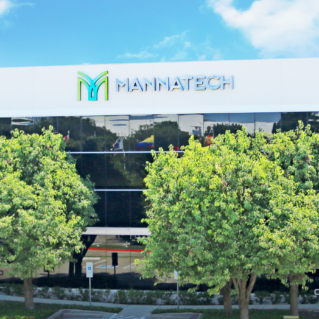At USANA’s annual Americas and Europe Virtual Convention, USANA CEO and chairman Kevin Guest announced the company’s next big humanitarian goal: raising enough money to fund 30,000 garden towers around the world by USANA’s 30th anniversary convention next year.
These garden towers, made of large, heavy mesh bags filled with soil, make sustainable low-cost food sources accessible to families living in some of the most extreme and impoverished conditions in the world. The bags are only three feet in diameter, making them suitable for those who have little or no access to land, and only require 30-50 liters of water per week. Each bag holds up to 120 plants.
“I have always been so proud of the difference USANA makes in the world with fighting food insecurity, and these garden towers are the next step in eradicating world hunger,” said Kevin Guest, USANA CEO and chairman. “I know funding 30,000 garden towers in a year is a big goal, but I truly believe it’s a goal the USANA Family can deliver on. A donation of just $20 covers the whole cost of the fabric for the tower, the soil, the seeds, and the training on how to use them. Twenty dollars is all it takes to provide three to five years of sustainably sourced, nutritious food and a source of income for people who need it most. I hope everyone will join me and USANA in giving people the food and nutrition they deserve.”
Recipient families can mix manure from local farm animals into the soil to develop fertile compost, creating a self-sustaining method of planting multiple food crops in a single source that is suited for all areas of the world.
“I am so excited to see our garden tower project take flight with Kevin’s lofty goal,” said Brian Paul, president of the USANA Foundation. “We have already seen so much success with these towers in Kenya and Mexico—providing people in those regions with not just nutritious food, but also paying jobs like sewing the mesh bags together and additional income from selling the excess food to market. For the first time ever, entire communities are beginning to find themselves fully self-sufficient. It’s incredible the difference just a bag of mesh, some soil and seeds can make in the world.”


